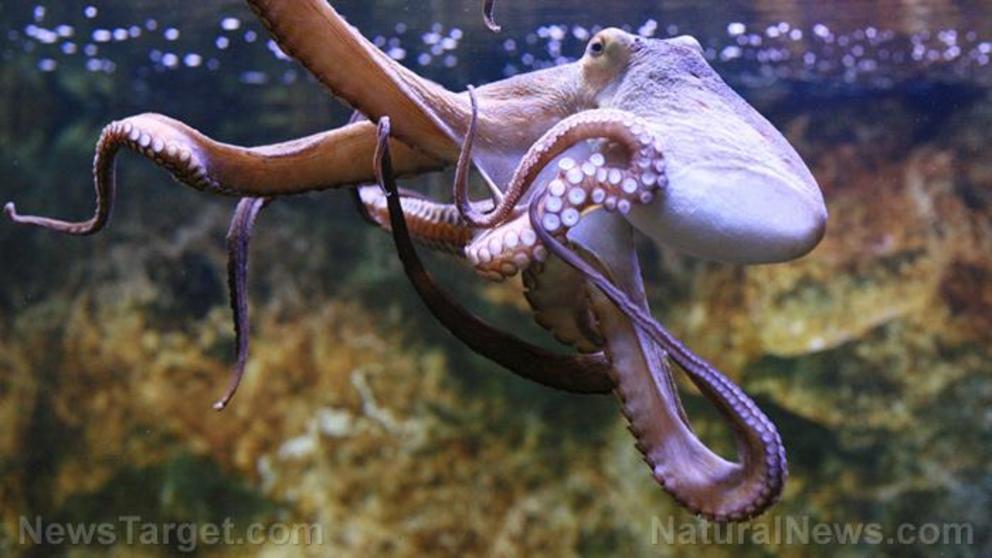From the sea to the stars: scientists study octopuses to understand intelligent life on other planets
Researchers trying to figure out how extraterrestrial life may think are starting to look in different places. In one study, presented at the 2019 Astrobiology Science Conference, a group of researchers from the University of Washington (UWash) in Seattle believe that the way the arms of a cephalopod like the octopus “think” can be a model for how intelligent alien life thinks.
The nervous system of an octopus is wired differently from many vertebrates. For people, a central nervous system sends out orders from one location, the brain, to the rest of the body. That’s not how it works for the octopus.
All eight arms of the octopus are filled with concentrations of neurons known as ganglia. These “arm brains” can operate independently from the central brain. So, if an octopus coils one of its arms around an object, it’s not because its brain signaled to pick up the object. Rather, the arm decided for itself that it would grasp it.
In human terms, it would be like if every limb was afflicted with alien hand syndrome, the rare neurological disorder that causes one hand to act on its own free will.
Autonomous thinking of octopus may be similar to how extraterrestrial life thinks
David Gire, professor of neuroscience at UWash and advisor of the project, explained that one of the “big picture questions” the study tried to answer was how a decentralized nervous system works and how it works when confronted with complex tasks, such as moving through liquid to find food on the complex ocean floor.
The UWash scientists who studied the thinking processes of octopuses visualized how the animal’s central brain is hardly involved during the movement of the arms. They used a camera along with behavioral-tracking software to model how the octopus observes its surroundings and then processes information about its immediate environment using what could arguably be called its autonomous arms.
“What we’re looking at, more than what’s been looked at in the past, is how sensory information is being integrated in this network while the animal is making complicated decisions,” said Dominic Sivitilli, UWash graduate student in behavioral neuroscience and astrobiology, during the presentation.
The results of Sivitilli’s study found that the decision-making mechanism is bottom-up rather than top-down, or radiating from the arms up to the brain, instead of the other way around like with many other animals.
The sensors in an octopus’s arm contains tens of thousands of chemical and mechanical receptors. For comparison, the human fingertip merely contains several hundred mechanical receptors. When the octopus arm feels something on its sucker, the whole arm processes the input and pushes the signal along, signalling the next suckers, activating arm muscles and generating a wave of motion. This motion travels up the arm toward the body. According to Sivitilli, while the arm engages with its immediate environment – and with other arms – the signal that the central brain receives is “highly abstracted” and not involved with the thinking of the arm.
“It’s an alternative model for intelligence,” said Sivitilli. “It gives us an understanding as to the diversity of cognition in the world, and perhaps the universe.”
Sivitilli’s study presented in a conference on astrobiology
The autonomous and bottom-up mode of thinking of the octopus is interesting especially for an astrobiologist like Sivitilli, or somebody who studies life both on Earth and outside of it. The way the octopus processes information – by basically “outsourcing” computation on how to move its body – is unique and, according to Sivitilli, “as alien an intelligence as we can meet on Earth.”
Because of this unique cognition process, studying the decentralized nervous system of the octopus can serve as an important model for understanding how alternative intelligence might function. It can also prepare experts for recognizing different expressions of cognition that may be present in intelligent life that originates from other worlds.
For full references please use source link below.

